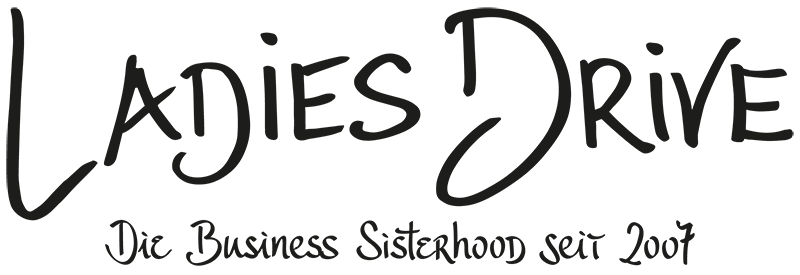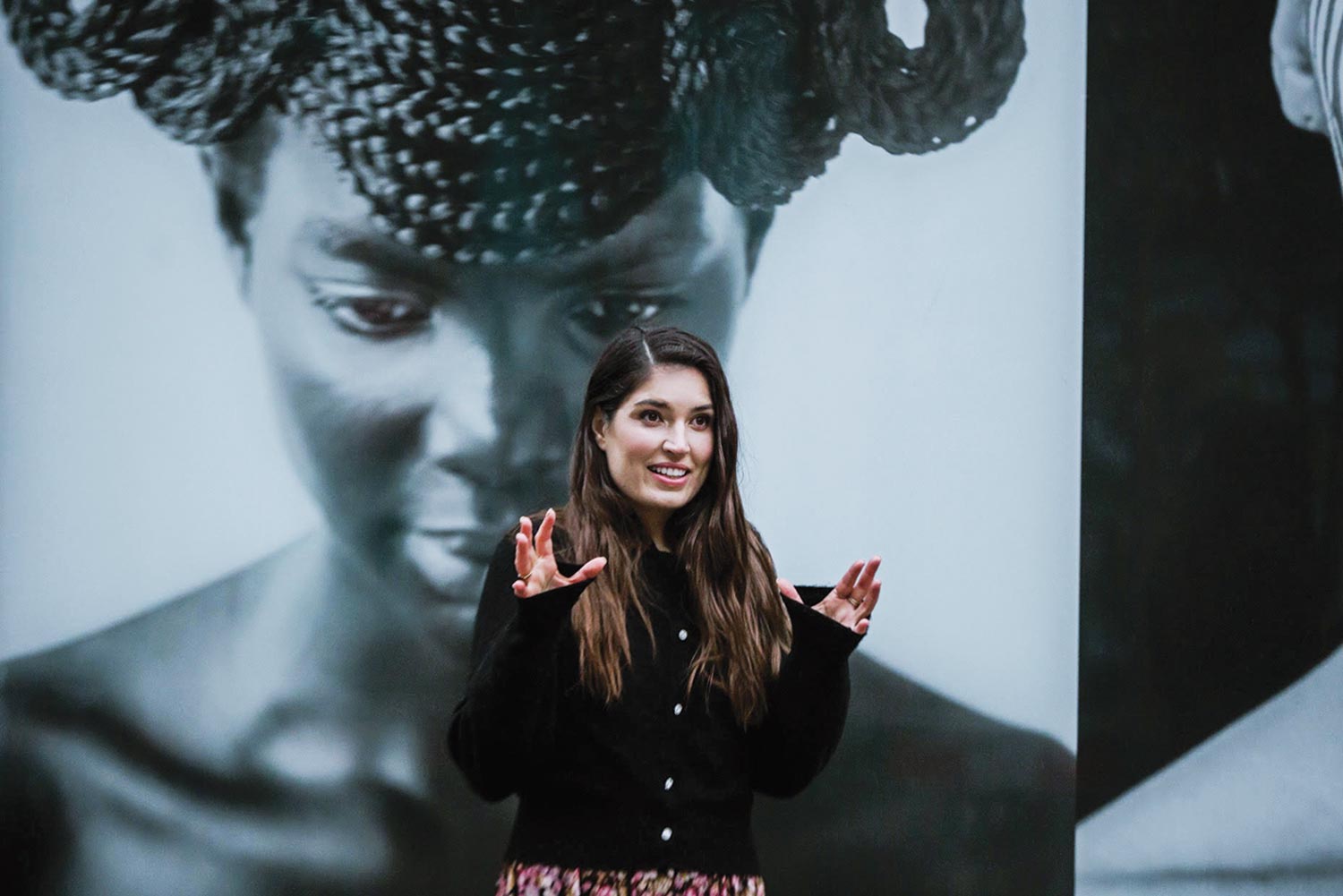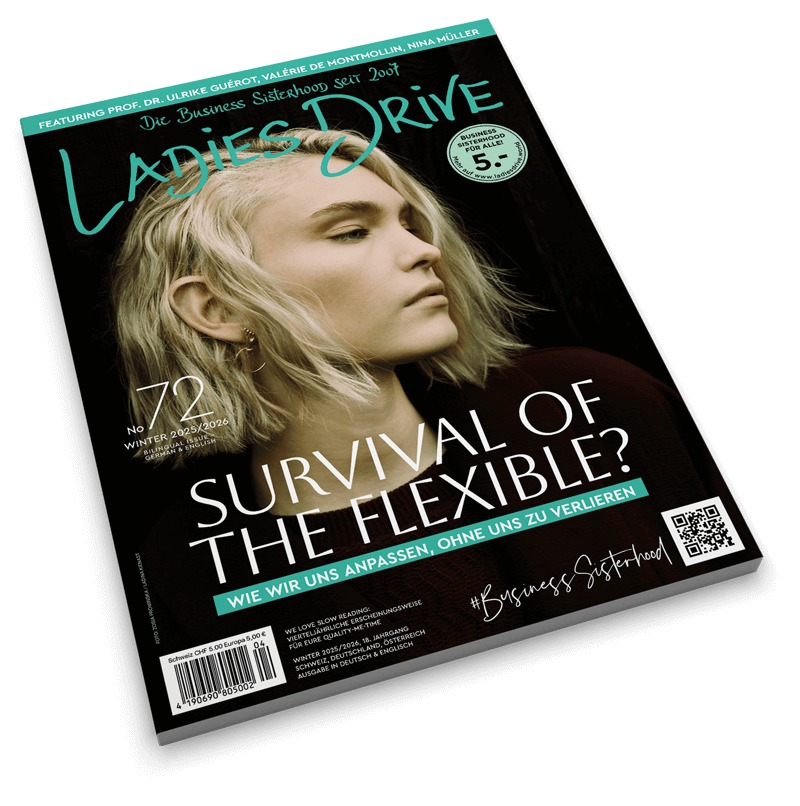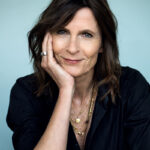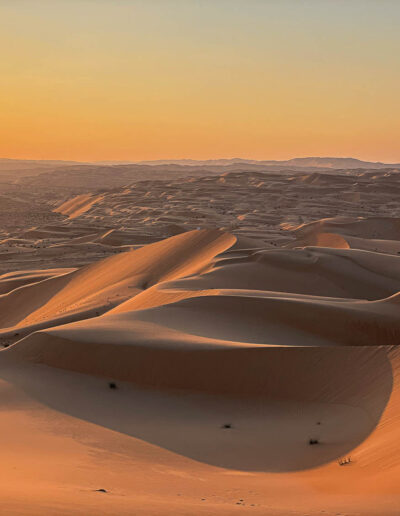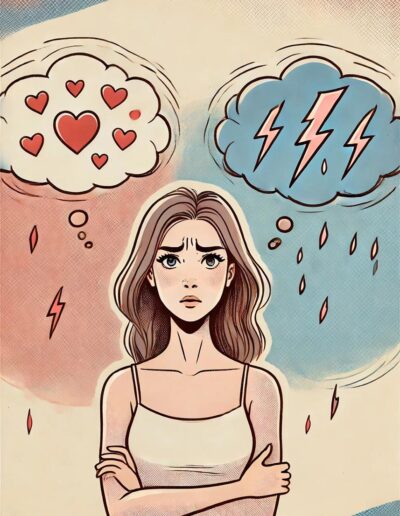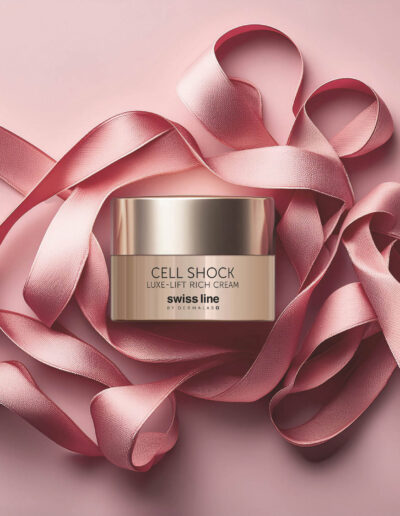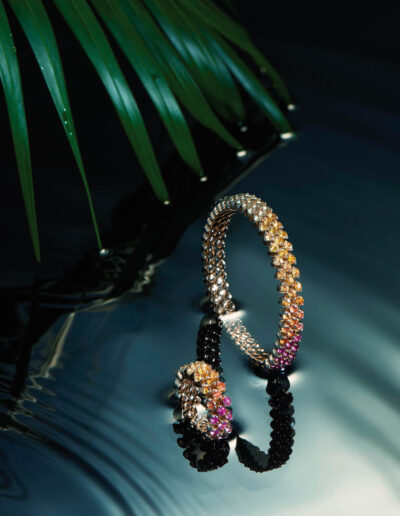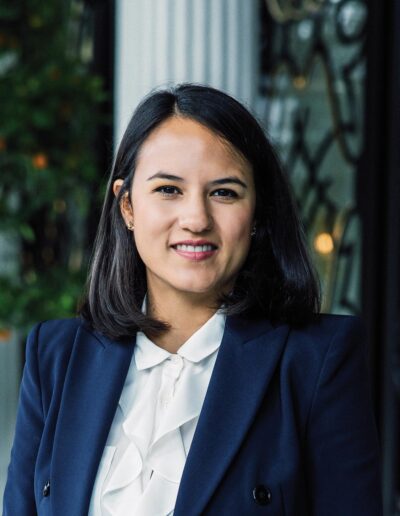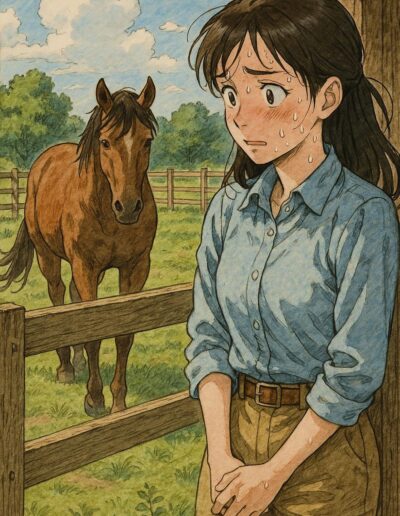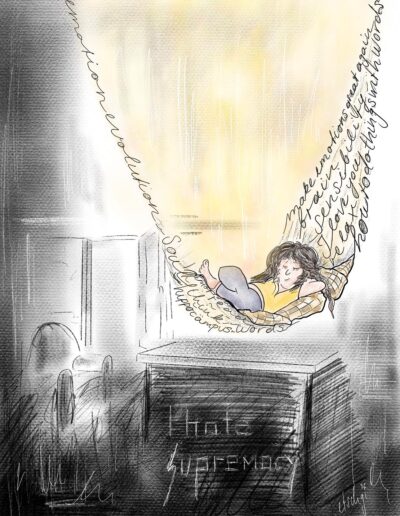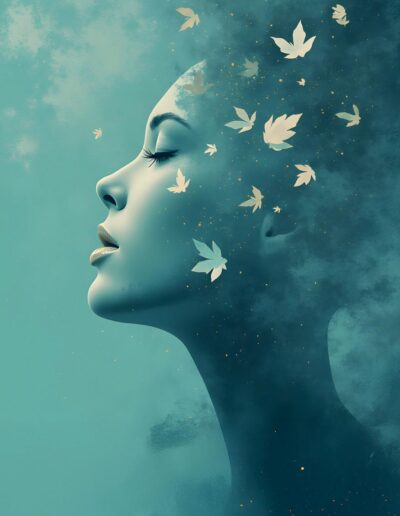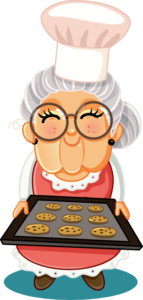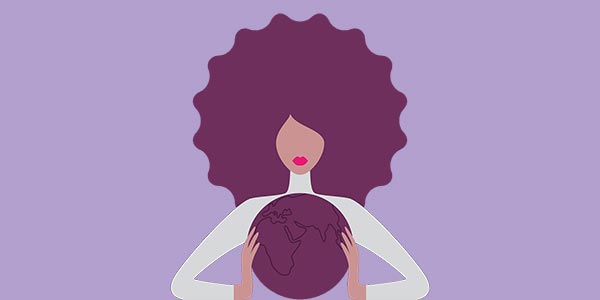On 7th & 8th April 2025, the League of Leading Ladies came together for our annual League of Leading Ladies Conference. “Planting Ideas – Think The Unthinkable” was the motto for the two days at the Victoria-Jungfrau Grand Hotel & Spa in beautiful Interlaken. We are happy to present one of our amazing keynote speakers to you here, Marine Tanguy. Meet a powerful young woman from the UK with a vision and an unstoppable determination to make her dreams and ideas come true. At the LLL Conference she will talk about The Visual Detox, also the title of her recently published book. We won’t anticipate too much of her keynote here, but we wanted to get to know her and share this wonderful spirit with our whole community.
Ladies Drive: Marine, without revealing too much of your speech for the LLL Conference: what is The Visual Detox all about?
Marine: From the objects we see in our physical surroundings to the 1.8 billion new images uploaded online every day, visual images are constantly seeking to entertain, inform, and manipulate our attention for profit. Such unending streams of information can overstimulate our brains, causing stress, anxiety and fatigue. In The Visual Detox, I draw on new research, decades of professional experience and interviews with artists to show us how to:
✔ Sharpen our visual critical thinking skills
✔ Decode the hidden messages in all areas of our lives
✔ Combat the sensory overload we experience online
✔ Regain control over our digital hygiene, media consumption and decorating choices
Packed with tiny yet potent hacks, this practical and transformative guide will help you reclaim your focus and sense of wonder, one day at a time.
What makes you come up with so many clear, poignant and sharp insights and conclusions? I watched some of the talks and interviews you gave. You are no doctor, no surgeon, no physician, no scientific researcher, you’re just a normal human being with a normal functioning brain. No professor …
Even worse than that: I’m a double dropout. I don’t even have more than a high school diploma (laughs). But I published an academic paper on the value of public art within cities and I am currently working on a new white paper with University College London. I was always fascinated by visuals and how we interact with them. It’s about the relationship that we have with our visual environment and the place of the arts within it. I think my brain does work in a bit more of a scientific way if I find something interesting, I like to read heavily about it. I do work with academics and I do lead studies too. It’s not just me conducting my little research on the side, I have now several professors that I collaborate with quite extensively. If I just get interested in a problem, I guess that’s why I am an entrepreneur, I like to crack this problem and find a solution to it.
How?
I see a problem. I don’t understand the viewpoints around the problem. I try and crack it. It’s like a Tetris game. But as I try and crack it, I read heavily, I contact academics, I talk to people, I research. And then, if I see that there’s a really interesting perspective that hasn’t been explored, then this is how I get on with it. So visual biases is an example like this where, again, I just felt that that was actually underexplored and under-researched.
You built up the first talent agency in the art world, the MTArt Agency, the world’s leading talent agency for visual artists. How did that happen and was that always your goal?
I’m more ideas led than a natural-born entrepreneur. I think, oddly enough, it was always clear to me that I wanted to build this company but as I grew up in a rural area, these jobs and companies didn’t exist. I grew up in France on the west coast on Île de Ré. It’s a tiny beautiful little island, where we were five of the same age at school and more birds than people. My parents brought me up with socialist values which is why I integrated social values in my firm. Was it always clear what I wanted to do? I was really, well, lucky. If I was to encounter myself at five years old, she would completely understand my job. She’d be like: that’s exactly what you wanted to do. You wanted to be with artists, you wanted people to be inspired while looking at art in their daily lives. Obviously, I could not foresee exactly its execution, because the company that I now run would not have existed back then.
One of our main topics of this issue of Ladies Drive is the importance or meaning of emotional speaking, emotional language. Can you relate to that?
Yes. I work with visual poets, we’ve done plenty of public art projects with poetry in the streets. So I think that’s my closest interaction with words. I’m also an enormous reader, I read plenty and I love words. In the same way that I feel images are used for shock and there’s a speed to the exposure we have, I think words are also used without an understanding of their meaning. We have a clickbait culture of imagery and words and then we have those kinds of words constantly used for things that actually do not match what the words mean. What I relate to and what we’re trying to do also within my company and obviously with the book too is trying to consume visuals with less speed and more purpose.
We also have AI intruding into the world of writing and visual expression …
You start seeing with current AI generators like Open AI or Midjourney, visual biases repeating themselves endlessly and invading our day to day visual consumption. And yet I also get to work with the most amazing AI artists like Ivona Tau, Delphine Diallo and so many others. AI is posing the question of what is creativity and it has been both an enhancer to artists and a threat to their intellectual property and role within society. It’s a really interesting year to study this.
Would you share with us how you stay strong and focused? You have two young children, expecting no. 3 in June, you wrote a book, you run a successful company, you do talks, keynotes, the whole lot …
I actually dance ballet almost daily. It may sound like something else I added in this crazy diary but this is what keeps me together. It’s my me time, my way to regain focus to my brain and thoughts and to remain calm. Dance is one of the highest forms of therapy. Ballet is my way to be the person that you encounter now. It puts everything in perspective, whether I gave a talk in front of 1000 people or not, I still need to do my pirouettes and soutenus and the progress is slow but tangible overtime. It’s a one step at a time reminder and it is applicable to all aspects of life. I’m super lucky as we live in London and the dance academy is next to my house. I can bring my kids to the stretching studio next to my class, it’s a dream. The kids can actually be there when I dance. And they do Lego or they do their drawing and stuff. It’s just so nice. It’s a really lovely community of people too.
Did you pick that up as an adult or did you dance as a little girl?
As an adult as I realised that I could become overwhelmed with the fast growth of the company and I didn’t want to start snapping at my team. I had read the book The Body Keeps The Score (Bessel van der Kolk, Penguin). It’s by a neuroscientist, I read it and he basically explained that dance is the highest form of therapy because mentally it’s good for you, physically it’s good for you, emotionally it’s good for you because it’s a processing mechanism. Everything is in it. So I turned up to a ballet class, I had not danced ballet before and I think they were like, she’s going to quit because initially it’s so brutal. You have to learn a full language, all the notes, the sequences. And I stuck to it because I just wanted to try and understand if I can do it. It became my little heaven. It’s also so nice to start a hobby like this when you’re older.
Marine Tanguy
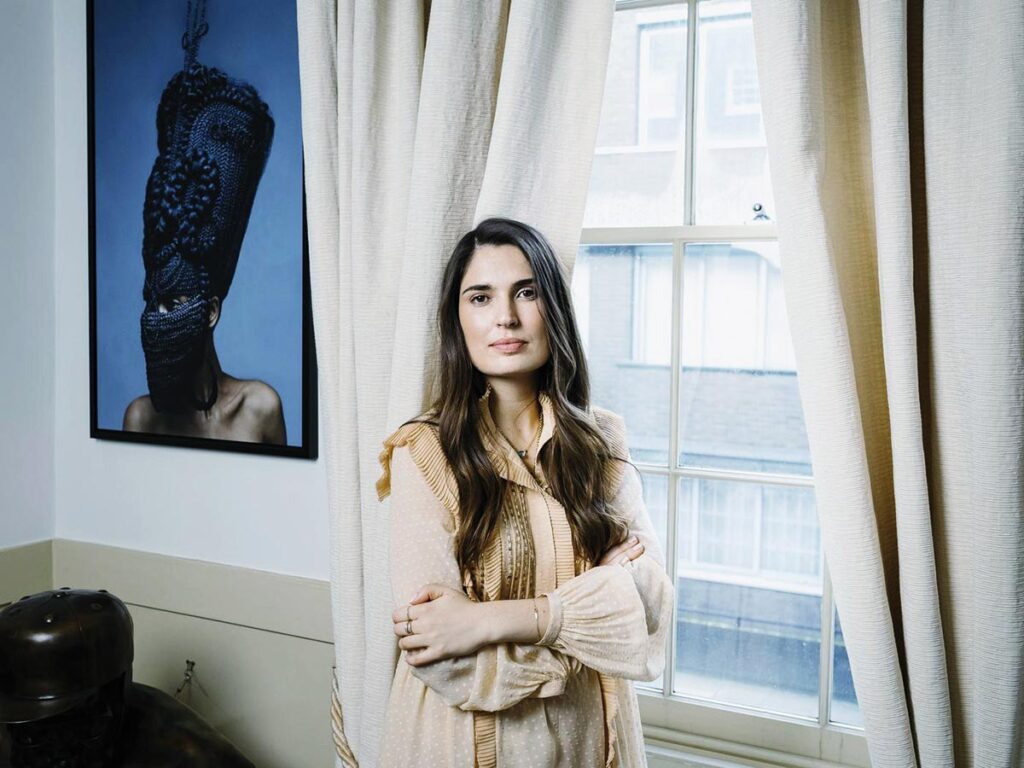
Marine was born on the French island of Île de Ré. Her mother is a primary school teacher and her father a sports teacher on the island.
At the age of 21 Tanguy managed her first gallery, the Outsider’s Gallery, in London’s Soho district. Marine, who was two years into an art history degree at the University of Warwick at the time, dropped out of the course to take up the role. The Outsider’s Gallery was founded by Steve Lazarides, the gallerist who discovered many of the top street artists such as Banksy and Invader. Two years later in April 2014 Marine, along with investor Steph Sebbag, opened the De Re Gallery in Los Angeles. In June 2015, she founded MTArt Agency. MTArt Agency was the first talent agency dedicated to visual artists. As a business person, Marine was awarded Forbes 2018 30 under 30 Europe: Art & Culture, UK entrepreneur of the year for the 2019 NatWest Awards and 2023 Hurun entrepreneur of the year under 35. In 2024, she was awarded the Champion of Empowerment Medal for her leadership in empowering artists and creatives around the globe by Alex Davies-Jones, Minister for VAWG and the Parliamentary Society of Arts, Fashion & Sports.
